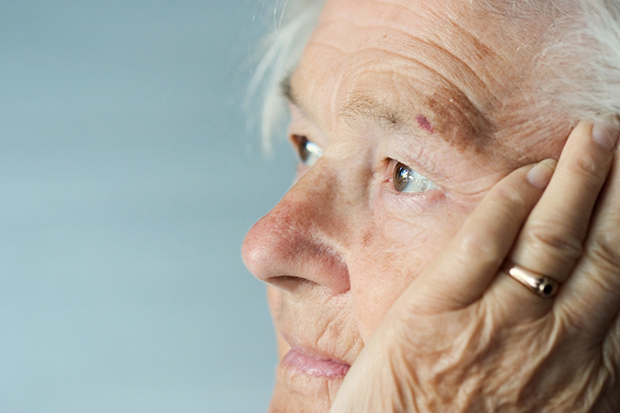
By Darla Price Heath, Philanthropy and Volunteer Engagement Director, Meadows Communities and Jeff Heath, Community Outreach Director, East Lawn Memorial Gardens and Funeral Home
The days after experiencing the loss of a loved one are filled with a flurry of activity and decisions. Family and friends need to be notified, and there are decisions regarding a funeral or memorial service. During this time, many people feel numb and later describe the days following their loss as a blur. For older adults, such as Alice, who have lost a spouse, there are too many emotions to describe. Some days are good, and some days aren’t.
Family, friends, and the community want to be present, to be there for you in your time of need. It’s comforting to receive cards, phone calls, food, and visits. However, after a while, visits are less frequent, and there are fewer cards and letters in the mail. The phone isn’t ringing like it was.
Following a loss, people often don’t feel like getting out and back into a routine. Isolation leads to loneliness, depression, and a decline in health for the person grieving. After family and friends leave, the surviving spouse realizes the magnitude of the loss. Many funeral providers recognize this and have started providing after-care programs specifically to not only deal with grief after a death, but also to get widows and widowers involved in social activities to reduce their risk of isolation.
The AARP Foundation’s Connect2Affect has called social isolation a growing epidemic. Isolation is recognized as having dire physical, mental, and emotional consequences. Since the 1980s, the percentage of American adults who say they’re lonely has doubled from 20 percent to 40 percent. Social isolation and loneliness are associated with increased mortality in older adults. Social isolation also has been linked to other adverse health effects, including dementia, increased risk for hospital readmission, and increased risk of falls. However, research consistently shows that feeling connected and involved benefits both mental and physical health.
A wave of new research suggests social isolation has been connected to changes in sleep patterns, nutrition habits, altered immune systems, more inflammation, and higher levels of stress hormones. One recent study found that isolation increases the risk of heart disease by 29 percent and stroke by 32 percent.
Changes in diet and healthy nutrition affect one’s energy and zest for life. Eating patterns are also impacted because cooking for one and eating alone are less inviting. If couples walked or exercised together, motivation for being active may be lacking.
Had Alice and Charles made the move to assisted living, Alice’s experience following Charles passing may have been much different. Being part of a community prevents isolation while offering the privacy of apartment-style living.
There’s no need to cook for one when living in a community. In fact, chef-prepared meals are available three times a day. You will not be faced with eating meals alone unless you choose to. Eating with others is much more enjoyable, encourages healthy eating, and increases socialization. Communities offer daily activities and exercise, which greatly impacts health and vitality. Transportation is also provided, so getting to and from doctors’ appointments and social events will not be a concern.
The greatest defense in combating social isolation is continuing to be part of a community, whether that is being part of an assisted living community, a church community, a grief support community, or a social club community. Others in these communities have experienced losses and will have a great deal of empathy. These kind folks will be there for you when you need them most.
Whether you are in your own home or a senior living community, grieving is a process that is different for everyone. Taking time to mourn and working through the grieving process are very important in dealing with emotions, accepting loss, and learning to live life without that special person. If you find yourself having difficulty with isolation after a loss, call your local funeral provider, assisted living community, or physician for a list of support services that will help you through this difficult journey.
For more information about senior living, you may contact Shelly Nagy, at Meadows at Mercy Creek, 309-268-1403. Mercy Creek is located at 1501 Mercy Creek Drive in Normal (near the intersection of Raab Road and Towanda-Barnes), offering services such as chef-prepared meals, housekeeping, maintenance, complimentary transportation, life-enrichment opportunities, and a full range of health and personal care assistance.

